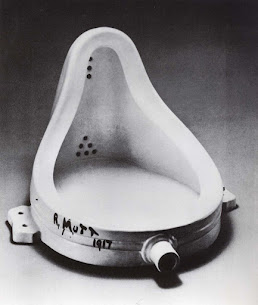Critical Reasoning in Response to Atheism
I was thumbing through FB posts late one night, far past my bedtime, in a group called Great Religious problems. Its a closed group that I was invited into by a long distance friend that knows a bit about my proclivity towards philosophical discussion. Most of the posts are depressingly anti this or anti that. There's a lot of bashing of other people's religions from all sides. Its seems people have an easier time talking about the things that they don't believe than in talking about those that they do.
So among these posts, I happened across a rather long and heartfelt proclamation of atheism and because it was late, and I have a tendency to petulantly fight sleep, it provoked within me a desire to respond.
Here is the post and afterwards my response to it....
I don't really fear or even dread death because I think it will be exactly the same as before we were born...a non-existent status ....a total lack of consciousness. Probably, the closest we come to this condition while alive is when we're under general anesthesia or when we're in a very deep sleep.
And why should we should we fear returning to the void from which we came anyway. As Mark Twain said, " I was dead for billions of years before I was born and I wasn't the least bit inconvenienced by it".
I DO feel bad, however, that I won't be around to enjoy events to come. The future holds many surprises and pleasures and it pains me to know I'll miss them. And I DO dread the process of dying, but not the idea of death itself.
Sure, like everybody, I'd dearly love to see my parents and friends again, but I have to be intellectually honest with myself and admit there is no evidence that consciousness survives death, NDEs notwithstanding.
Neuroscience is very convincing on the subject. The living brain generates consciousness by unknown and yet to be understood biochemical reactions, but when its cells die...when its neurons stop firing and communicating, your awareness, your consciousness most certainly comes to an end, also. There is no empirical evidence that awareness supersedes or survives physical death.
That's a bitter pill to swallow. We all resist and many deny the idea that everything will end someday. That fear, that dread is one of the driving forces behind the invention of religion.
As someone once said, a belief in the afterlife is for those who are afraid of the dark. But, as much as I’d love to be comforted by a belief in life after death, I’m convinced that the truth is, it doesn’t exist.
And that makes it all the more important to make the best of the time we have in this, our only life.
--Doug Hullander
To which I commented:
Just to play devil’s advocate here....
Why would you resign yourself to be “convinced of the truth” of something that is currently unknowable?
Do you see how doing so is basically a resignation to an unprovable belief that has its own set of dogmas?
It is admirable that you’re not scared of death and that you don’t feel the need to be comforted or coddled by a religious belief system but you’re taking comfort in a different system.
The comfort is in the idea that you know some objective things about the nature of reality and that you can depend on the scientific method for certain quantifiable facts. But there are still things that science has not yet found ways to measure. It doesn’t mean those things don’t exist. You’re saying you believe they don’t as if science has proven everything that it can already but it hasn’t. And science, as a method, would never make such a claim, because there is a difference between fact and theory. Some scientists fall prey to a belief in theories but in doing so they sell science short.
As humans we find it difficult to understand or even find ways to measure the levels and types of consciousness possessed by other living organisms. We used to say it was language that truly set us apart from the animals but we’re starting to understand that there are many other species of animal and even plants that communicate with each other in truly sophisticated and subtle levels that we just didn’t notice before.
The universe and even this little planet is still teaming with a near infinite number of mysteries that we still haven’t noticed or found ways to fully examine.
It is not silly to think that upon dying our consciousness could perhaps carry on in another dimension, in a more subtle or different form, or even just melt into a firmament of collective consciousness that’s then compressed in a zip file and imprinted in every strand of dna that comes after you.
If it comforts you to believe that your consciousness dies with your body, then there’s nothing wrong with that. It’s entirely up to you, but don’t fool yourself into the thinking that it’s a fact or that your belief is in any way more valid than the people who know for a “fact” that they have souls and they’re going to heaven or hell when they die.
The only actual fact that can be stated about what happens to our consciousness after we die, is that we don’t know.
All we have so far on the subject are a near innumerable amount of fascinating theories, and a lot of highly subjective experiences. So many subjective accounts and experiences that they do seem to add up to something...
...many different somethings... depending on where you look and how you feel about it, but as of yet there is no quantifiable certainty and perhaps that is by a sort of design.
Perhaps it is part of the nature of death to be uncertain.

Comments
Post a Comment